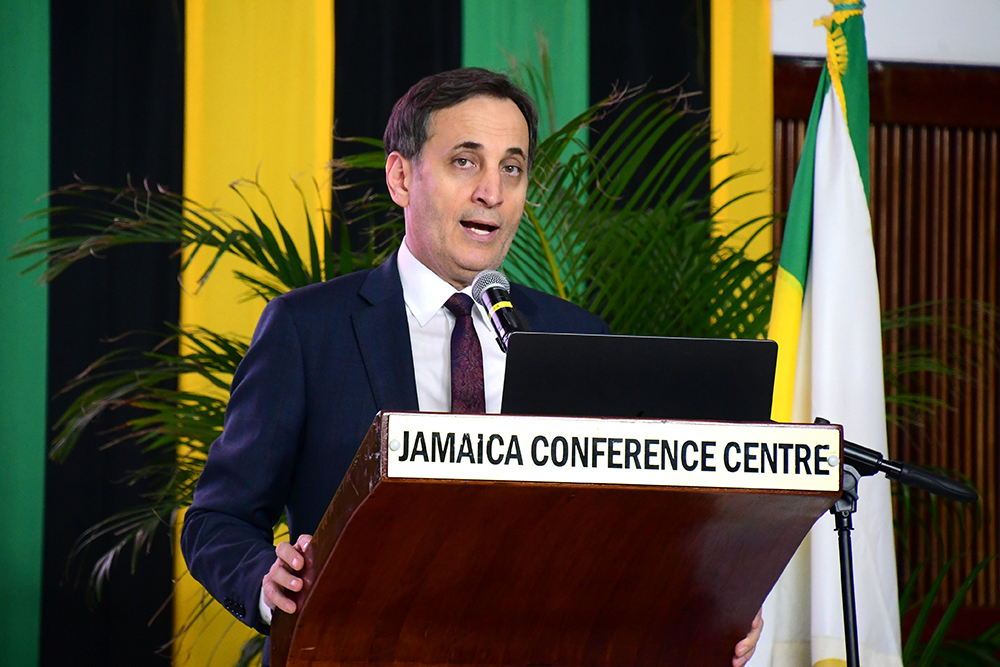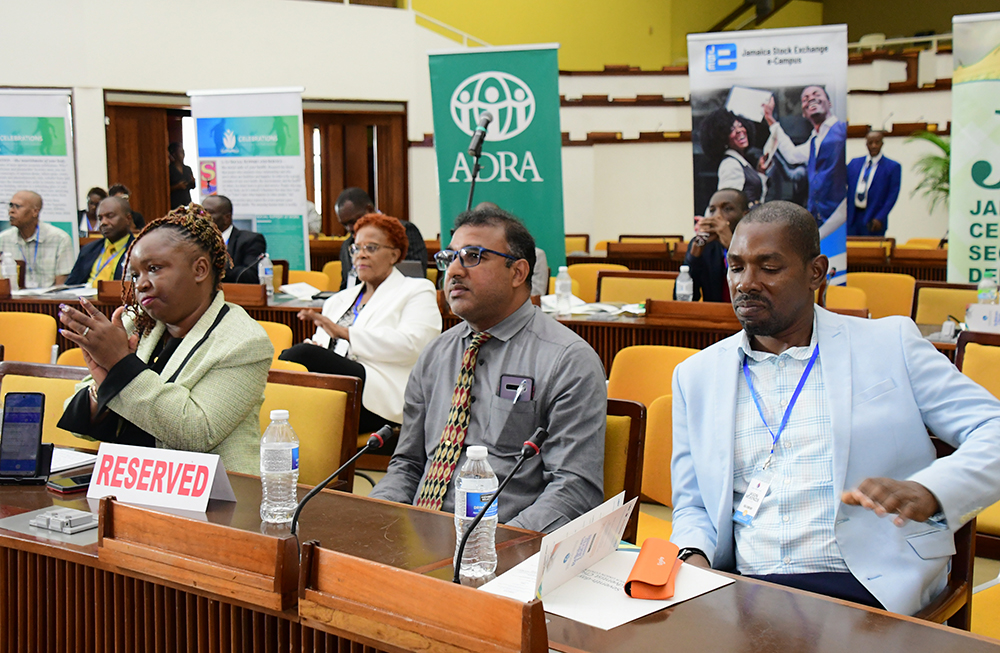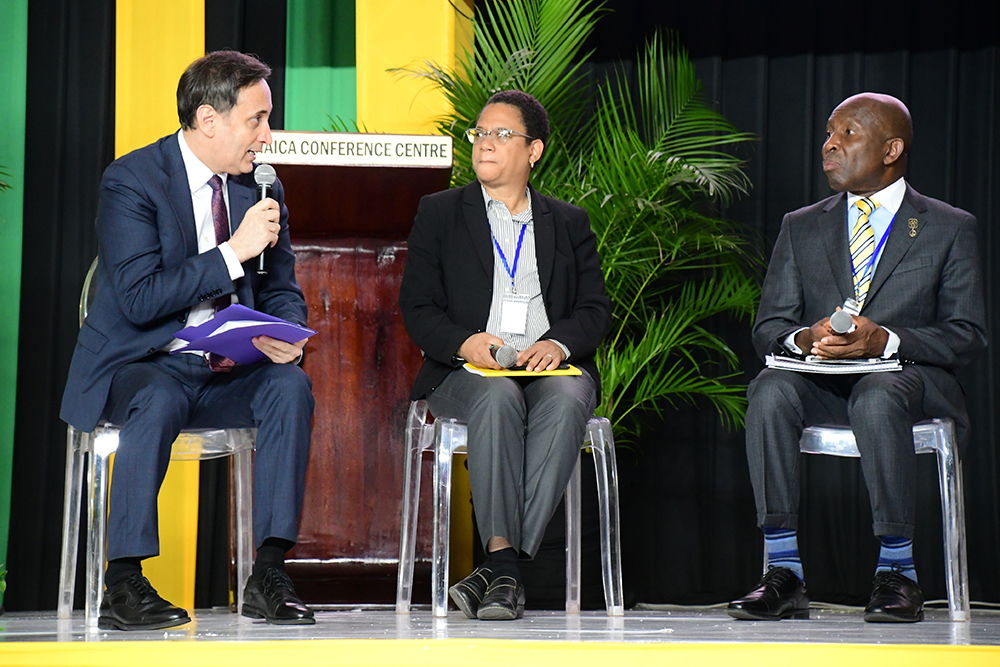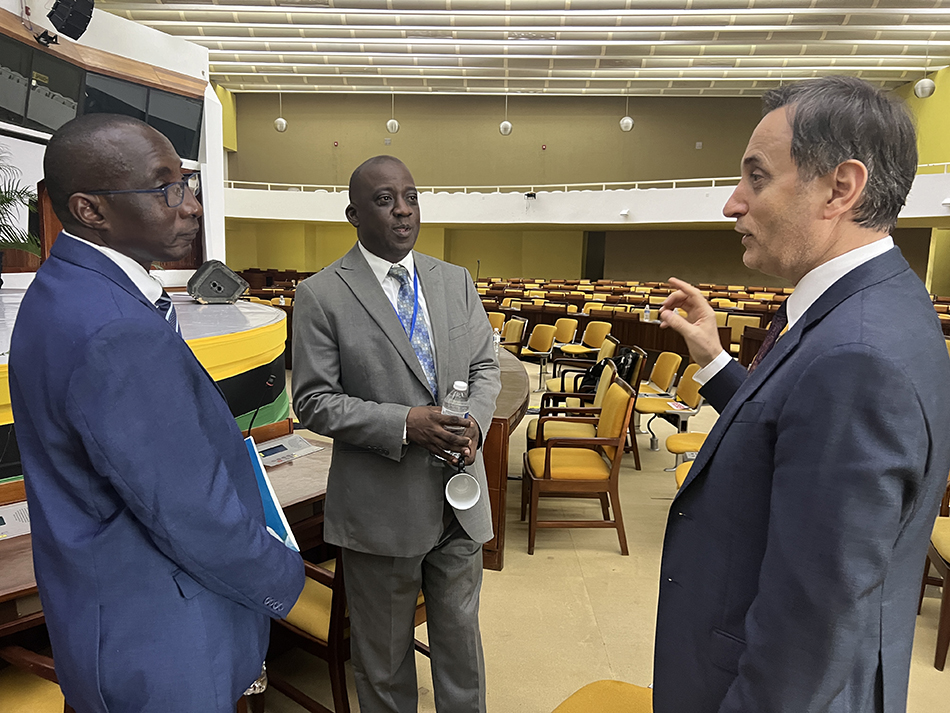‘The Right to Freedom of Thought, Conscience, and Religion Is Non-Negotiable’
In Jamaica, keynote speaker discusses the current state and challenges of religious liberty.
February 16, 2025 | Kingston Jamaica | Dyhann Buddoo-Fletcher and IAD News Staff
Seventh-day Adventist religious liberty leaders launched a passionate plea for the church to uphold and advocate for religious freedom, particularly for those facing persecution during the Jamaica Union Religious Liberty Summit in Kingston, Jamaica, on January 30, 2025.
Dr. Nelu Burcea, associate director of Public Affairs and Religious Liberty at the General Conference of Seventh-day Adventists, warned the attendees that the time for comfort is over.
“We cannot turn a blind eye to the suffering of millions of individuals around the world who are persecuted for simply holding a belief. The right to freedom of thought, conscience, and religion is non-negotiable. It is a fundamental human right that must be upheld by all, without exception,” Burcea said.

Dr. Nelu Burcea, associate director of Public Affairs and Religious Liberty at the General Conference of Seventh-day Adventists speaks during the Religious Liberty Summit in Kingston Jamaica, held January 30, 2025. The summit gathered representatives from diverse faiths, academia, corporations, government, and non-government organizations in Jamaica at the Jamaica Conference Centre. [Photo: Phillip Castell]
As the keynote speaker, Burcea urged all sectors of society to protect religious freedom through political advocacy, social engagement, or support for organizations dedicated to this cause.
The Rising Threat to Religious Freedom
Highlighting the growing threat to religious freedom, Burcea explained that “violent assaults on religious freedom manifest in various forms, including hate speech, intolerance, discrimination, lack of equal opportunities, stereotyping, and outright violence. These injustices impact not only individuals but entire communities and nations.”
He pointed out that religious minorities worldwide face escalating threats, especially in areas where they are outnumbered. “In some cases, these groups become targets of military operations, forced conversions, destruction of religious sites, and other forms of persecution. Whether Christian, Muslim, Hindu, Jewish, Buddhist, or belonging to other faiths, religious minorities frequently encounter restrictions on their rights and freedoms.”

Representatives from the Jamaica Civil Service Association and educational sector in Jamaica and the Caribbean listen in during Religious Liberty Summit, on Jan. 30, 2025. [Photo: Phillip Castell]
Burcea also warned against the rise of religious nationalism, which fosters exclusion and hostility toward those of different faiths. “Governments may implement laws or encourage practices that privilege one religion over others, undermining the pluralistic traditions of many societies,” he said.
He further argued that this marginalization often extends beyond societal prejudice, translating into national policies that discriminate against minority groups, leaving them without the protection or freedom to practice their faith openly.
“The rise of religious nationalism not only threatens the stability of societies but also threatens the ideals of democracy, human dignity, and freedom upon which the modern world is built,” he said.
Burcea also addressed concerns about secularism’s growing influence. While secularism aims to protect freedoms, it can create an environment where religious expression is restricted, challenging the fundamental right to religious freedom,” he explained, citing bans on religious attire and limitations on religious ceremonies in public spaces.

Dr. Nelu Burcea (left), associate director of Public Affairs and Religious Liberty at the General Conference of Seventh-day Adventists speaks during a panel discussion to Stacey Mitchell (center), chairperson of the Jamaica Council for Interfaith Fellowship and Pastor Glen Samuels, president of the West Jamaica Conference Kingston Jamaica, held January 30, 2025. [Photo: Phillip Castell]
The spread of hate speech, mainly through social media, has worsened religious intolerance. “The absence of effective legal protections against hate speech fuels discrimination and violence,” he noted.
Religious intolerance, Burcea warned, leads to discrimination and, in extreme cases, incites violence. “Negative portrayals of religious groups reinforce division and marginalization,” he said, adding that such rhetoric can escalate into direct persecution.
Authoritarian Regimes, the Death Penalty, and Religious Persecution
Under authoritarian rule, religious freedom is often suppressed to maintain control. “Any expression of faith that does not align with state ideology is viewed as a threat,” Burcea said. “Religious groups that stand against government policies may face arrest, torture, or even execution.”
In some nations, the death penalty is used to suppress religious beliefs. “Individuals have been sentenced to death for apostasy, blasphemy, or other religious offenses. This is a grave human rights violation that demands global opposition,” he said.

Dr. Nelu Burcea (right) public affairs and religious liberty associate director of the General Conference of Seventh-day Adventists makes a point to Adlai Blythe (left), treasurer of Jamaica Union and Henry R. Moncur III, Public Affairs and Religious Liberty director of the Atlantic Caribbean Union, after the Religious Liberty Summit held at the Jamaica Conference Center in Kingston, on January 30, 2025. [Photo by Nigel Coke]
“Religious minorities often face barriers to education, employment, and healthcare, deepening their marginalization. Economic exclusion perpetuates cycles of poverty and social instability, making it difficult for these communities to thrive,” he said.
Building a Future of Religious Tolerance
In closing, Burcea deepened his call for unity in defending religious freedom. “True peace and stability come not from eliminating differences but from recognizing the dignity and rights of every individual. Societies must work toward fostering environments where people can worship freely, express their beliefs openly, and live without fear of persecution. Only through tolerance, understanding, and mutual respect can we ensure religious freedom for all.”